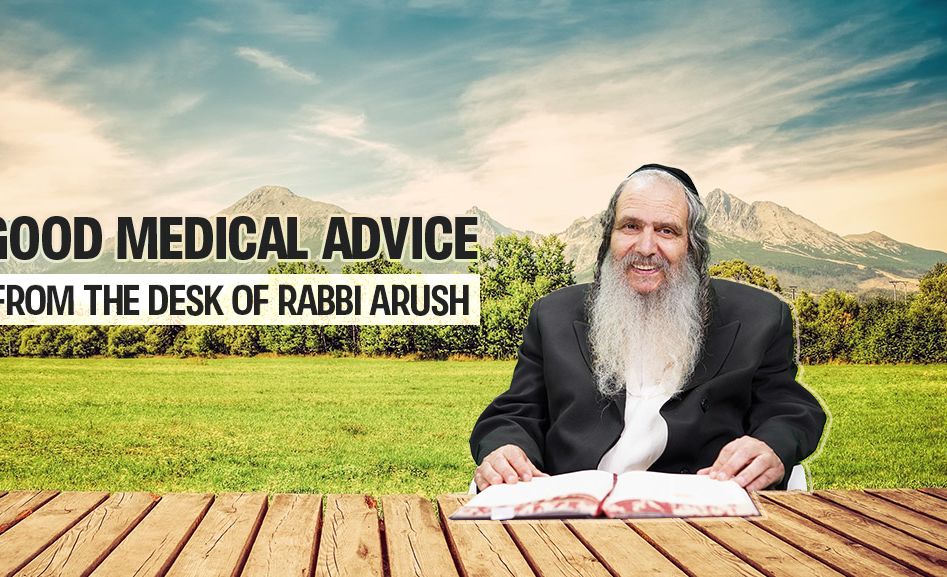
The Whole World is a Narrow Bridge
The whole world is a narrow bridge; there are times when you feel incredibly alone and 'lost'. At those times, it's vital to remember that G-d is with you...

“The whole world is a very narrow bridge. And the main thing is to not scare yourself.”
Most of us have heard Rebbe Nachman’s dictum about the whole world being a very narrow bridge (and some of us even know the tune and cute hand motions that go with it.) But the catchy song tells us that the main thing is not to be afraid, while in the original Hebrew, Rebbe Nachman actually tells us not to ‘make ourselves afraid’ – which is a small, but very significant difference.
Recently, I picked up an amazing book by Rabbi Efim Svirsky, called ‘Connection: Emotional and Spiritual  Growth Through Experiencing G-d’s Presence’. In that book, which is kind of a cross between a session on the couch and a very intense bout of personal prayer, Rabbi Svirsky explained the following ideas.
Growth Through Experiencing G-d’s Presence’. In that book, which is kind of a cross between a session on the couch and a very intense bout of personal prayer, Rabbi Svirsky explained the following ideas.
There are eight fundamental fears:
- Fear of rejection or criticism
- Fear of failure
- Fear of losing control
- Fear of the unknown
- Fear of loneliness
- Fear of not knowing the purpose of life
- Fear of suffering
- Fear of death
He goes on to explain that fear is our most primary negative emotion, and that pretty much every other negative emotion is simply a reaction to our fear. Say, for example, someone gets scared by a dog barking at him. In most cases, his next reaction will be anger – at the dog, at the owner, at himself for getting scared, or (if he’s on a really high spiritual level) anger at G-d for creating that scary situation.
When someone is trying to put a guilt trip on you to force you to come to their ‘big bash’ (when you clearly don’t want to go…) what’s really going on there? Could well be that the person has a massive fear of losing control, or loneliness, and they are going into manipulative control-freak mode as a result.
Or, let’s say that you’re a parent who constantly berates your child for being too messy, too disorganized, too fat, too stupid. What’s really going on there? Well, one answer could be that the parent is scared stiff of being seen as a ‘failure’ themselves, or being criticized for having less than perfect children. Whatever the nasty behavior, or negative emotion, or disturbing behavior, if you trace it all the way back to it’s root, you are going to get to fear. So now we know the problem, what’s the solution?
It’s pretty easy: emuna. Or to be more precise, Rav Arush’s three rules of emuna, that completely demolishes all these fears, once a person starts really trying to live by them. First, let’s remind ourselves what the three rules are:
- There is only G-d in the picture. He’s running everything in the world, including your life.
- Everything is ultimately for my good – so I don’t have to get sad and depressed about it in the meantime.
- G-d’s trying to send me a message. He wants me to change or fix something in myself.
Now, back to the fears, and let’s see how this works in practice. If I believe that G-d is responsible for everything, then my fears of failing, losing control, and the unknown just got blown out the water.
If I believe that everything is ultimately for my good, that just exploded my fears of rejection and criticism, my fear of loneliness, and my fear of suffering. Lastly, if I believe that G-d is trying to communicate with me, and that we’re having an ongoing dialogue that’s guiding me to my true purpose in life, that just took care of my fear of not knowing the purpose of life.
There’s still the last one, though, the fear of dying. But if a person is living their life with emuna, the fear of dying transforms into a fear of dying without having done the job I was down here to do. And instead of causing panic attacks, depression, and apathy, that fear spurs us on to do as much spiritual work as we can, which in turn vitalizes us and helps us to live a holy, fulfilled life. That fear is a holy fear, a good fear, an elevated fear.
Back to the narrow bridge. What was Rebbe Nachman trying to tell us? Many things, but this is what I’m taking away from it: the whole world is a narrow bridge; there is only space for one person to get across at a time, and in places, you will feel incredibly alone and ‘lost’. At those times, remember that G-d is with you – and that G-d is the only ‘person’ who can accompany you the whole way on this journey.
Also remember that when the fear hits you, you actually can control it. The main thing is to not make yourself afraid. Cling to G-d, work on your emuna, and you too, will get across and live to tell the tale.










2/12/2025
Emuna
All of Israel must beat with one heart!
Together Is what Hashem wants!